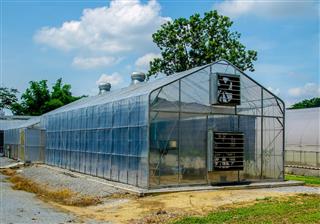
Biological research has advanced in leaps and bounds, in the past few decades. With the completion of the Human Genome project in April 2003, new tools and techniques have been developed, and are being utilized to study various aspects of biology.
Never-ending recitation
If one were to continuously read aloud the letter of each base of the 3 billion bases that make up the human genome, without taking any breaks at all, the recitation would last for a period of 57 years!
The advancement in research has granted humans an understanding of how living organisms function and the purpose of their function: how they interact with the environment, the type of inter-species interactions that they have, and the impact such interactions have on the rest of the planet. These explanations have given rise to further questions based on the origin and evolution of all biological species, which eventually leads to queries regarding the exact processes occurring within an organism that determine all aspects of its existence, including the impact it has on its environment.
At present, the rising progress in science, medicine, and technology has made positive as well as negative impacts on the planet, as a whole. Current scientific research hopes to resolve these negative impacts with biological solutions, while at the same time demystifying and resolving queries related to the biota.
Aging
Aging or senescence is the collective process through which an organism undergoes multiple physiological changes over the course of its lifetime. It includes the development of an organism’s cognitive functions till it reaches maturity, and then a steady decline of those same functions till the organism’s eventual death. Such a decline affects other body processes, leading to their impaired functioning.
In humans, aging brings with it, body frailty, organ weakness, and mental decline. Research has shown that humans are born with a biological clock that regulates this process of aging. This clock functions by the combination of a steady loss of hexamer telomeric repeat sequences of chromosomes during replicative processes and the accumulation of DNA damage and cellular wastes in an organism during the course of its life.
Scientists have researched model organisms such as C. Elegans, and observed reduced senescence in the event of selective mutations in specific genes. However the same result is yet to be reproduced in higher and more complex organisms, hence the elucidation of the exact process remains a mystery. As more studies are carried out, more theories are put forth to help explain the occurrence of this process, along with ways to prevent and reverse it.
Relevant Research Topics
- Selective telomerase activation to delay senescence
- Inhibition of mTOR gene and gene products for longevity of life
- Effects of diet (caloric restriction) on lifespan
- Effect of altered energy generation capacity (epigenetic changes) on the process of aging
- Effect of reduced mRNA translation on senescence
Agriculture
The ever-growing human population along with the recent population explosion has caused a dramatic increase in the demand for food crops. This coupled with the occurrence of natural disasters like earthquakes, floods, etc., and pest problems, result in huge losses of food grains. Such a shortage increases the world’s hunger problem, where most of the inhabiting people of developing nations are unable to feed themselves everyday.
To solve such a mammoth crisis, and to avert death of people on account of starvation, the yield of food has to be increased manifold. One way to do this, can be by upgrading the agricultural practices of farmers; by giving them advanced know-how, better tools and implements, and to have precautions in place to protect the farmed yield from instances of natural disasters and pest populations.
Another way to overcome this problem, is to research and produce newer varieties of these food crops that are resistant and even repellent towards pest populations, while at the same time produce a very high yield with minimum care. Varieties of crops which produce food in more than one season, can also be produced.
Relevant Research Topics
- Development of GMO food crops
- Development of high-yield varieties of wheat and corn
- Imparting viral, fungal, and bacterial resistance to crop plants,
- Study of salt and water stress on plants
- Inducing production of pest-repellent natural biochemicals (e.g. nimbidin from neem tree) in normal food crops
Antibiotic Resistance
With the advent of vaccines, anti-microbial, and anti-viral agents, numerous diseases have been eradicated, averted and contained. Infections that would have proven fatal a few decades ago are now taken care of by a mere injection, tablet, or a capsule, helping in increasing the overall health of the human population.
But with the excessive use of antimicrobial solutions, nature serves us a reminder of continuous evolution in the form of antibiotic resistant strains of micro-organisms. As the strength and efficiency of these antibiotics evolves due to medical research, the infectious organisms too evolve and adapt to overcome these substances. An infection caused by such an organism is not only untreatable, but also proves to be fatal.
To curb this evolution of “super-bugs”, newer mechanisms and pathways have to be researched to prevent infections by these organisms. Also, targeted drugs have to be developed that halt the organism’s internal processes, thereby rendering it unable to infect.
Relevant Research Topics
- Mechanism of pathogenesis of antibiotic resistant agent
- Drug designing of molecules that hamper pathogenicity
- Development of a biomolecule that induces programmed cell death by caspase activation in resistant organism
- Development of new target models to produce more effective antibiotics
- Studying effects of probiotics in infection prevention
Bioremediation
Technology has brought the world closer and improved the quality of life considerably. Actions that took extended periods of time, can now be carried out easily and within a short time. There is year round availability of goods in all parts of the world.
But such industrial advancement comes with its fair share of adverse consequences. The petroleum industry which provides fuel for so many purposes, has accidents which cause oil spills in oceans. These affect the natural fauna and flora of the marine ecosystem. The smoke emissions from vehicles and industries cause air pollution, which in turn affects the health of animals and humans equally. The effluents from the factories pollute water bodies, that eventually affect anything and anyone that utilizes the water.
These instances are not only hampering the health of organisms but also affecting the physical world in the form of climate change, global warming, and ozone depletion. Scientists are now working on natural biological ways to rid the environment of such harmful pollutions, and are also devising ways in which the pollution is altered and reduced at their very source.
Relevant Research Topics
- Development of GMO microbes that break down oil
- Development of eco-friendly fuel alternatives (bio-diesel)
- Practical use of bioluminescence in place of electricity
- Bio-films that absorb air pollution
- Studying plants (water hyacinth) and microbes that can absorb heavy and toxic elements from effluents of industries
Cancer Metastasis
Cancer is one of the major health concerns in humans. It is the condition of uncontrolled and abnormal division of body cells. These cells have the potential to spread to other parts of the body, and spread the cancer. Cancer is characterized by the formation of a cell mass called the tumor. There are two types of tumors – benign and metastatic. The benign tumor is just a compact overgrowth of cells that can be easily removed by surgery. However, if the cells turn metastatic, that is they gain the ability to migrate to other parts of the body via the blood stream, the tumor is said to be malignant.
Maximum cases of death due to cancer are due to recurrences of the tumor. Tumors once removed, recur due to the metastatic nature of the cells. If the metastasis is prevented or averted, the chances of the tumor recurring are drastically reduced.
Not only is this condition without a cure, but the mechanisms by which it occurs is also not known in detail. Research has to be carried out to determine the mechanism by which it occurs, and only then could a way be worked out to prevent and eventually cure this condition.
Relevant Research Topics
- Studying mechanism of cancer metastasis
- Rescuing function of tumor suppressor genes in cancerous state
- Developing methods and tools to identify and eliminate cancer cells without hampering healthy cells
- Targeted drug therapy to cancer sites
- Gene therapy to hamper the cancerous cell’s metastatic pathway
Developmental Biology
All organisms develop from a single-celled zygote, and animals within the same order and family of classification resemble each other during the initial stages of embryonic development. The field of developmental biology deals with the study of how complex multicellular organisms develop and emerge from what is essentially a ball-like mass of cells (morula).
It consists of studying the various processes that give rise to our characteristic physical appearance, body plan and structures, and the regulatory processes of the body. Any defect or malfunction during the embryogenesis process causes a structural and functional defect in the individual organism. In some cases the defect is too large to overcome, and proves fatal to the organism, leading to the death of that developing embryo.
Developmental defects cause a variety of health disorders such as spina bifida, microcephaly, schistocystis, etc. Researching the causes of these conditions may offer an insight into their management and possible cure.
Relevant Research Topics
- Epigenetic basis of embryogenic development
- Specific cell fate and cell mapping of gastrula cells in development of higher animal fetuses
- Genetic basis of cleft palate
- Gestational environment that leads to developmental defects
- Effect of maternal health and diet on developing embryo
Genetic Disorders
Genetic research has opened up a new approach towards the cause of multiple disorders. A majority of birth defects, syndromes, and disorders are due to gene defects. This understanding has allowed researchers to investigate the genetic basis of diseases and disorders.
Any disorder that occurs, is mainly due to a mutation or defect in the gene sequence. This disruption causes a change in the protein encoded by that gene. The altered protein leads to a malfunction or prevents the occurrence of a process eventually, thereby giving rise to the disorder.
A few such disorders include Downs syndrome, Huntington’s disease, Marfan syndrome, Alzheimer’s, Lesch-Nyhan syndrome, and Cystic Fibrosis. Studying the mechanisms of these diseases will help elucidate the path along which the disease progresses, and the role of the genes involved.
Relevant Research Topics
- Cystic fibrosis (CFTR gene)
- Huntington’s disease (HTT gene)
- Lesch-Nyhan syndrome (HPRT1 gene)
- Wilson’s disease (ATP7B gene)
- Down syndrome (trisomy of 21st chromosome)
Infertility
The sedentary lifestyle of people, coupled with the pollution in the environment, and stress, are causes of a number of health concerns, one of the major concerns being infertility. More and more people are unable to procreate, and have been diagnosed to be infertile. While adoption is a viable option, the people diagnosed with infertility still prefer having a child of their own. A major reason behind this logic being the social stigma attached to the concepts of infertility and adoption.
Infertility, to a certain extent, can be reversed by a change in the lifestyle of the affected individual. But in some cases, the reason might be structural or genetic. The karyotyping or a body exam of the individual may yield the reason behind the infertility or the reason may be genetic.
Relevant Research Topics
- Effect of Robertsonian translocations on infertility
- Effect of Ring chromosomes on infertility and miscarriages
- Age-related factors affecting infertility
- Development of refined In Vitro Fertilization (IVF) and Post Implantation Genetic Diagnosis (PIGD) techniques
- Hormonal basis of miscarriages
Neurobiology
The most mysterious and elusive of organs, the brain, is the most vital organ of the body. It not only controls all the processes of the body, but also the thoughts, instincts, and actions of the individual. It is responsible for the personality and the behavior of every individual. Despite this, the brain is yet to be fully mapped out and elucidated.
Within the gyri and sulci of the brain, neurons pass electrochemical impulses that allow the brain to comprehend and react to the surroundings. While the basic functions of neurons are studied and known, still mystifying are the concepts of intelligence, memory, perception, psychology, behavior, and thoughts. Also, the concept of soul and whether it exists or not, remains unresolved.
Relevant Research Topics
- Comprehensive brain mapping
- Brain activity during epileptic seizures
- Basis for substance addiction
- Brain processes involved in memory, intelligence, and formation of thoughts
- Twin studies of monozygotic twins developing different personalities and behavior traits
Structural Biology
The field of structural biology is studied to determine the 3d structures of biological macromolecules, how they interact with other molecules, and how alterations in their sequences lead to structural changes. It is studied by making use of a number of software tools that are programmed to predict various structural aspects based on the protein sequence provided to it.
The protein sequence is provided by means of in vitro lab assays specifically designed for that purpose. The software predictions are based on the results of techniques such as mass spectroscopy, X-ray diffraction, nuclear magnetic resonance, etc,. Research in this field can be used to know how mutations affect the 3d structure of the molecule it codes for. It can also be used to study the interactions between proteins, or between ligand and receptor molecules.
Relevant Research Topics
- In silico study of biological macromolecules
- Prediction of protein structure based on altered sequence
- Protein-protein interaction related to immune response
- In silico drug designing against virulent protein
- Studying protein structure and interactions in case of an unknown pathogen
Research on any of these topics will revolutionize the understanding of biological processes, and help humans in improving their quality of life without having an adverse effect on the environment. A number of universities and research foundations are dedicated towards finding the answers to the issues mentioned here.






















